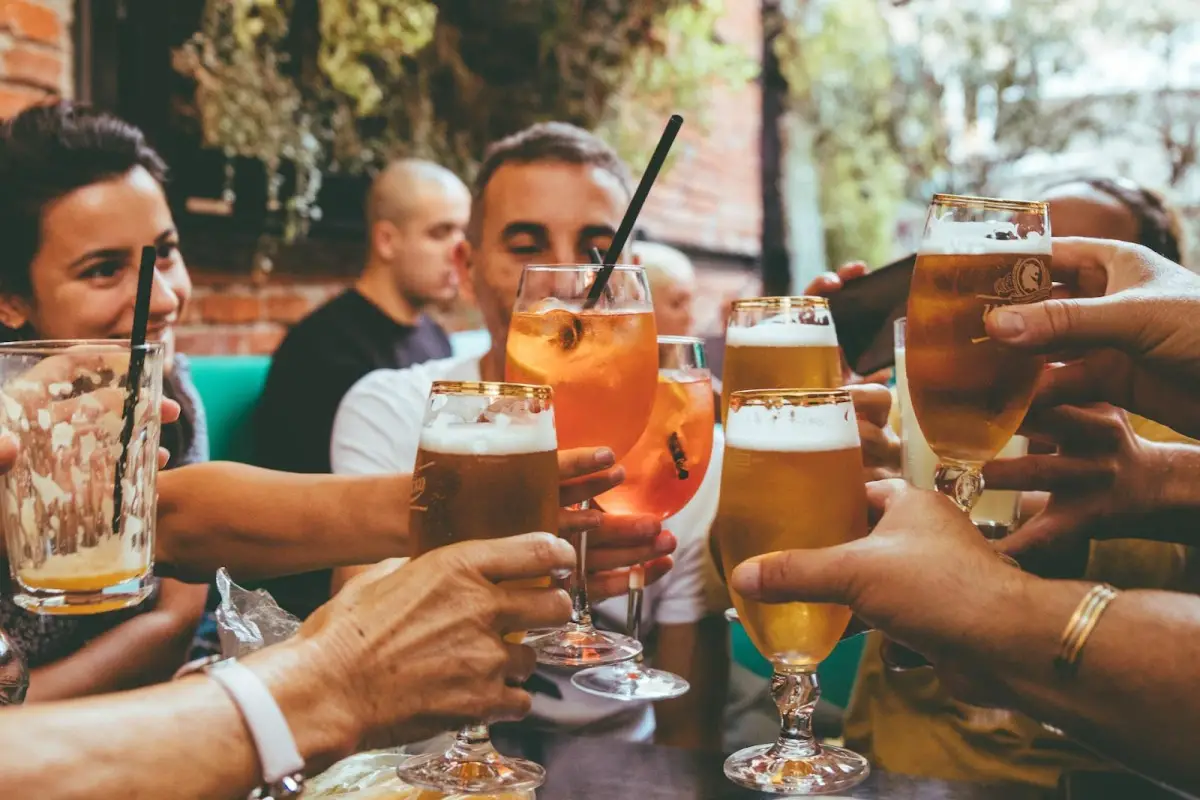Last Updated on 1 year by Francis
Contents
8 Things You Should Know About Social Drinking
Featured Image
Alt-tag: People drinking.
It’s no secret that alcohol is a popular component of many social gatherings. Whether you’re enjoying an evening with friends, heading out to celebrate a special occasion, or simply unwinding after the workweek – there are many occasions when drinking can be appropriate and even beneficial. But it’s important to remember that social drinking should be done in moderation and with intentionality. Here are eight things you should know about social drinking.
1 The Culture of Social Drinking
Social drinking practices and expectations vary greatly across cultures and countries. In some societies, such as the United States and Britain, alcoholic beverages are regularly served at social events. In other countries, such as Saudi Arabia and the northern region of India, alcohol is rarely consumed. Furthermore, in addition to cultural influences, there are various reasons for alcohol’s popularity in social settings. This includes its ability to help build relationships by encouraging people to let down their guard and relax. Additionally, it can be a source of added pleasure when combined with music or dancing; it can induce feelings of self-confidence, making it easier to connect with others in social situations.
2 Health Benefits and Risks
Social drinking can provide a variety of potential health benefits when consumed in moderation, such as reducing stress and associated cardiovascular benefits. However, as experts in addiction recovery, Little Creek Recovery doctors say that it is essential to remember that excessive alcohol consumption can have severe and lasting effects on both physical and mental health. Short-term risks include increased risk of accidents, unsafe behavior, and severe intoxication. In the long term, excessive alcohol intake is linked to higher risks for cancer, heart disease, depression, liver damage, brain damage, and impaired immune function. Therefore, it is essential to ensure that drinking habits remain within safe limits to ensure good health outcomes.
3 The Importance of Moderation
When it comes to alcohol, moderation is key. Moderate drinking can mean something different for everyone, as factors such as age, sex, and individual tolerance affect how much you should consume. To ensure safe drinking practices, limit yourself before heading out and stick to that number, or even drop it if needed. Additionally, try pacing yourself by alternating each alcoholic drink with a glass of water to remain hydrated. With responsible drinking habits, the possibilities are endless when it comes to indulging in the occasional alcoholic beverage!
4 Recognizing Problematic Drinking Patterns
Identifying problematic drinking patterns is essential for fostering a healthy relationship with alcohol. Key signs of potentially harmful alcohol consumption include an increased tolerance, neglecting responsibilities, and adverse effects on both physical and mental well-being. When you’re concerned about a friend or loved one’s drinking habits, it’s important to approach them with kindness, empathy, and understanding. Actively listening to them and offering objective support, such as educational resources or assistance in their quest to find the right treatment, can play a crucial role in helping them confront and overcome challenges related to social drinking.
5 Legal Implications: DUI and public intoxication
Social drinking can be an enjoyable pastime. However, it is vital to understand the legal implications of drinking too much. In many countries, driving under the influence and public intoxication are punishable by law. Some penalties may include fines, jail time, and suspension of driving licenses. Moreover, many nations have legislation around the minimum legal drinking age which you must follow. In some locations, the age can be as young as 16, while in other areas, this could go up to 25. Though laws often differ depending on where you live, it is essential to be aware of your surroundings and responsible when it comes to alcohol.
6 Alcohol Alternatives in Social Situations
Many social events involve alcoholic beverages, but that doesn’t mean you can’t incorporate alcohol-free options. Consider offering alternative drinks such as mocktails – essentially cocktails without the alcohol! You can make these from completely non-alcoholic ingredients or a combination of pre-made sodas and juices. This way, you’ll offer guests plenty of flavorful options that won’t make them miss the alcohol. As an alternative to hosting only alcohol-focused events, why not introduce the concept of alcohol-free social functions? Not only can these be just as fun and festive, but health benefits abound for those who choose not to drink. Additionally, most participants won’t feel left out when plenty of tasty non-alcoholic alternatives are available!
7 Strategies for Safe Social Drinking
If you want to drink responsibly, plan ahead and establish strategies to stay safe. To ensure safe transportation after social drinking, having a designated sober driver is a good idea. Additionally, you can use rideshare services such as Uber and Lyft. Additionally, public transportation options are available for those looking for an alternative. To reduce the immediate effects of alcohol, be sure to eat something before you drink. Food slows the absorption of alcohol into your bloodstream, meaning you will still get the same level of intoxication with fewer adverse effects on your body. Make sure to drink a lot of water as well. Taking the precautions outlined above allows you to enjoy yourself freely with friends in a healthy and safe environment.
8 Knowing When to Say No
And the last of the eight things you should know about social drinking is that it’s okay to say No. It often seems like there is an unspoken pressure to “keep up” with the crowd by drinking socially. Furthermore, certain events – such as weddings and other celebrations – can come with explicit expectations to drink. To make sure you stay safe when it comes to drinking—especially in social situations—it’s important to know how to assert your personal boundaries and confidently say no if that’s what you prefer. Socializing does not necessitate alcohol consumption. Therefore, you are not obligated to do it.
Meta Description:
If you don’t want to give up on drinking altogether but want to do it responsibly, here are 8 things you should know about social drinking.
Keyword:
social drinking
Image used:
https://unsplash.com/photos/0yqa0rMCsYk








